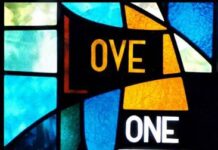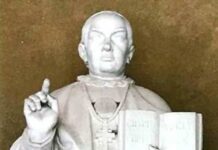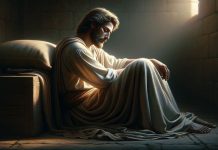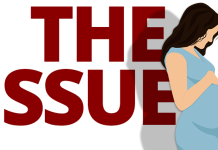You are not signed in as a Premium user; we rely on Premium users to support our news reporting.
Sign in or Sign up today!
“The Supreme Court has been persistent and destructive. Its doctrinaire views of the religious clauses of the First Amendment have secularized the schools and the public square, depriving communities of the benefits that would arise from the cooperation and involvement of religious groups and organizations, whose efforts at ameliorating major social problems have proven more effective than those of government.” — Dr. George W. Carey, professor of government, Georgetown University.

“The rough edges of one man rub against those of another, if the expression may be allowed, and the friction is often such as to injure the works … of the social machine. But by Christianity, all these roughnesses are filed down; every wheel rolls smoothly in the performance of its appointed function.” — William Wilberforce, British antislavery crusader.
The religion clause of the Constitution’s First Amendment is perhaps the most lied about line in any document in history. It is lied about for one purpose — to remove from the American people their connection with God and make them dependent on government.
For patriots striving to save our country from the darkness into which Democrats have cast it, faith is the true light: “Lord, to whom [else] shall we go? You have the words of eternal life” (John 6:68). Our opponents know this light and are determined to cover it.
Leftists instructed us from our earliest school days that the First Amendment guarantees the “separation of church and state” and that religion has no place in law. (Yet the words “separation of church and state” do not appear in the Constitution.) They said that the amendment guarantees God will not enter our schools and town squares. But He was welcome there until the Supreme Court told the people of Pittsburgh, in 1989, that they could not have a Nativity scene at Christmas (County of Allegheny v. American Civil Liberties Union). Democrats proclaimed that our Constitution guarantees us freedom from religion. In reality, it guarantees freedom for it.
The idea behind the words “Congress shall make no law respecting an establishment of religion or prohibiting the free exercise thereof” was to protect the role of faith in public life, not to prohibit it.
Let’s look to the history.
America’s Colonial Years
The majority of people living in the original 13 colonies were of English heritage. The Magna Carta, the first English document to guarantee a set of rights directly to the people (and which was greatly admired by America’s Founding Fathers), is dedicated to God in its opening paragraph. It states, “Know ye that we [King John], in the presence of God and for the salvation of our soul … and unto the honor of God and the advancement of Holy Church … confirm [this document] for us and our heirs forever.”
The Constitution’s First Amendment is perhaps the most lied about line in any document in history.
The second paragraph also concerns religion — not the rights of the 25 barons whose combined armies forced King John (of Robin Hood fame) to sign the text and whose rights the King had ignored. Instead, it guarantees the right of the Holy Church to appoint its own leaders, thus ensuring not that the State would be free from religion but that Christianity would be free of interference from the State.
Did the Englishmen who came as settlers (not immigrants) to America’s shores share those ideals?

The earliest example we have for Americans creating their own system of government is the Mayflower Compact — signed on Nov. 11, 1620, by pilgrims who had just crossed an ocean to find religious freedom. As author Rebecca Fraser notes in her book The Mayflower:
The Mayflower Compact has a whisper of the contractual government enunciated in the 4 July 1776 Declaration of Independence — that governments derive their just powers “from the consent of the governed.” It anticipated the 18th-century American republic’s belief that political authority was not bestowed by a monarch, but a contractual agreement of free peoples, articulated at the end of the 17th century by philosopher John Locke. … [It was] the birth of constitutional liberty.
Here is how that document, the foundation of truly American government, begins:
In the name of God, amen. … By the grace of God … having undertaken for the glory of God and advancement of the Christian faith, and honor of our king and country, a voyage to plant the first colony in the northern parts of Virginia, do by these presents solemnly and mutually, in the presence of God and one of another, covenant and combine ourselves together into a civil body politic.
The entire compact is a mere 204 words. Including “Anno Dom” (year of God), eight of those words are:
- God (five times)
- Faith (two times)
- Christian (one time)
Forgive me if I fail to see a “separation of church and state” emerging in the early American consciousness. For the pilgrims, faith was not a part of government — it was the primary purpose. Nor were they the first in America to use law to promote Christianity. Ten years earlier, the Virginia Articles, Laws, and Orders had been created to deal with rising chaos in the first English colony.
Unlike the pilgrim government, the council that created the articles was not church based, yet the articles state:
We owe our highest and supreme duty … to Him from Whom all power and authority is derived … the King of Kings. … I [the governor] do strictly command and charge all captains and officers … to have a care that the Almighty God be duly and daily served and that they call upon their people to hear sermons, as that also they diligently frequent morning and evening prayer themselves. … Every man and woman duly twice a day … shall … repair unto the church to hear divine service.
Telling military officers to pray and instructing the people to do the same might needle our modern sensibilities, but it was accepted by the early colonists.
The earliest settlers believed religion was necessary to government.
Later, in 1649, John Cotton, Richard Mather and Ralph Partridge, acting on behalf of churches in Massachusetts, created a document again showing the marriage of faith and law — the Platform of Church Discipline. The platform opines, “Church government stands in no opposition to civil [government] … but rather strengthens … and furthers the people in yielding more hearty and conscionable obedience … the one being helpful unto the other.”
In short, the earliest settlers believed religion was necessary to government, a sentiment later echoed by the leaders of the American Revolution and those who wrote the Constitution.
Revolution and Constitution
“The most enduring and absorbing public question from 1689 to 1777 was religion.” — E.S. Morgan, Puritan Ethic
“Spiritual liberty was the revolutionary-era Americans’ most fundamental understanding of liberty, so much so that it set the standard by which other forms of liberty were to be judged.” — Barry Shain, The Myth of American Individualism
The Americans who broke away from British rule in the late 1700s, laying as they went the foundations of our laws, considered Christian faith to be at the center of their new freedom. Yet the struggle for independence from the British Parliament and Crown was not about religion. Unfair taxes, yes; a lack of representation, to be sure — but not religion.
Mic’d Up Report: Separation of Church and State
But the first time the representatives of the 13 colonies met as one, in 1774, they drew up a document called “Declaration and Resolves of the First Continental Congress,” stating, “The good people of the several colonies … justly alarmed at these arbitrary proceedings of Parliament and administration, have severally elected … deputies to meet and sit in general Congress … in order to obtain such establishment as that their religion, laws and liberties may not be subverted.”
Those words, that Congress was to ensure that “religion not be subverted,” seem oddly out of place. Why would the representatives say they were concerned about their religion and make it the first issue their declaration mentioned? The words do make sense, but only if we understand that the colonists believed their other rights to be derived from God. To challenge any of the rights of America’s founding generation was to challenge their religion. This idea is clearly born out in the Declaration of Independence (written two years later), which states:
Men … are endowed by their Creator with certain unalienable rights, that among these are life, liberty and the pursuit of happiness. That to secure these rights, governments are instituted among men. … That whenever any form of government becomes destructive of these ends, it is the right of the people to alter or to abolish it.
Translated into modern English, this reads, “We were created by God, and our basic human rights come from Him. The purpose of government is to secure those rights. If the government fails to do so, we may overthrow it.”
__by_John_Trumbull.jpg)
Thus, everything about American law rests on God. Everything. Given that six of the men who signed the Declaration of Independence also put their names to the Constitution (Roger Sherman, Benjamin Franklin, Robert Morris, George Clymer, James Wilson and George Read), and given that the two documents were written less than 15 years apart, it is safe to assume that the religious spirit of the declaration carried over into the First Amendment.
In fact, George Washington was the president of the convention that drew up the Constitution and had previously given his full backing to the declaration (he did not sign it because he was leading the Continental Army at the time).
Finally, America’s Founding Fathers had quite a bit to say — outside of official documents — concerning the role of faith in government and life. Here are a few quotes (taken from my book on the founders):
- “Of all the dispositions and habits which lead to political prosperity, religion and morality are indispensable supports. In vain would that man claim the tribute of patriotism, who should labor to subvert these great pillars of human happiness, these firmest props of the duties of men and citizens” — George Washington
- “Now, therefore, I do recommend and assign Thursday the 26th day of November next [Thanksgiving] to be devoted by the people of these states to the service of that great and glorious Being who is the beneficent Author of all the good that was, that is or that will be” — George Washington
- “It is in the interest of tyrants to reduce the people to ignorance and vice. For they cannot live in any country where virtue and knowledge prevail. The religion and public liberty of a people are intimately connected; their interests are interwoven; they cannot subsist separately. … It is always observable, that those who are combined to destroy the people’s liberties practice every art to poison their morals” — Samuel Adams
- “It would be unbecoming the representatives of this nation to assemble for the first time in this solemn temple without looking up to the Supreme Ruler of the universe and imploring His blessing” — John Adams
- “It [Independence Day] ought to be commemorated as the day of deliverance, by solemn acts of devotion to God Almighty” — John Adams
- “Fear God, and your enemies will fear you” — Benjamin Franklin
- “‘No longer virtuous, no longer free’ is a maxim as true with regard to a private person as a commonwealth” — Benjamin Franklin
- “Let every family in the United States be furnished, at the public expense, by the secretary of this office, with a copy of an American edition of the Bible” — Benjamin Rush (signer of the Declaration of Independence and surgeon general to George Washington’s army)
- “The plan for the free schools is taken chiefly from the plans which have long been used with success in Scotland and in the eastern states of America, where the influence of learning, in promoting religion, morals, manners and good government, has never been exceeded in any country” — Benjamin Rush
Faith and good governance in our constitutional republic are inseparable. If God’s principles should ever be removed from the law, America will be a republic no longer.
— Campaign 31877 —
Have a news tip? Submit news to our tip line.

We rely on you to support our news reporting. Please donate today.























